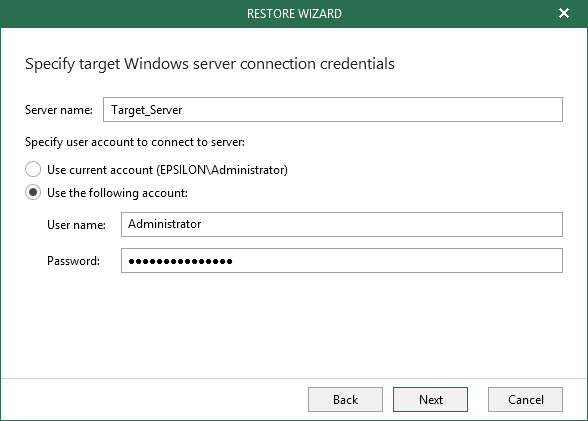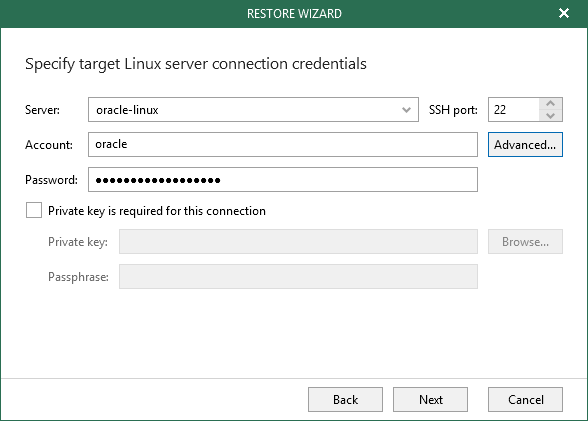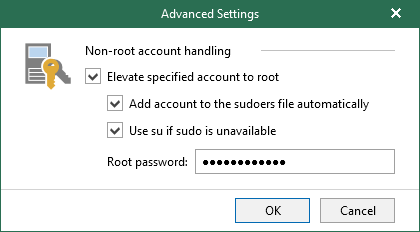 This is an archive version of the document. To get the most up-to-date information, see the current version.
This is an archive version of the document. To get the most up-to-date information, see the current version.Step 2. Specify Target Server
At this step of the wizard. specify credentials to access the target Oracle server.
Windows-Based Oracle Server
For a Windows-based Oracle server, do the following:
- In the Server name field, specify a server name to which you want to restore data.
- Under the Specify user account to connect to server section, select the following:
- Use current account. To connect to the specified server using the current user account under which Veeam Explorer for Oracle is running.
- Use the following account. To connect to the specified server under a custom user account.
Consider the following
- The user account must be a member of the local Administrator group and have sysdba privileges.
- The user account has been granted appropriate permissions to access Oracle databases; Read and Write are minimum required, Full Control is recommended.
Linux-Based Oracle Server
- For a Linux-based Oracle server, do the following:
- In the Server field, select a server to which you want to restore data.
- In the SSH port field, specify the port number of the selected server.
- In the Account filed, enter the user account under which to connect to the specified server.
- In the Password field, enter the password.
- If the private key is required to connect to the selected server, do the following:
- Select the Private key is required for this connection check box,
- In the Private key filed, specify a key. To select a key, click Browse and select a key.
- In the Passphrase field, enter the passphrase.
Consider that the user account must be a member of the dba group.
You can use the native Veeam Explorer abilities to elevate your account to root and add it to the sudoers file. To do this, click Advanced and select corresponding check boxes.


